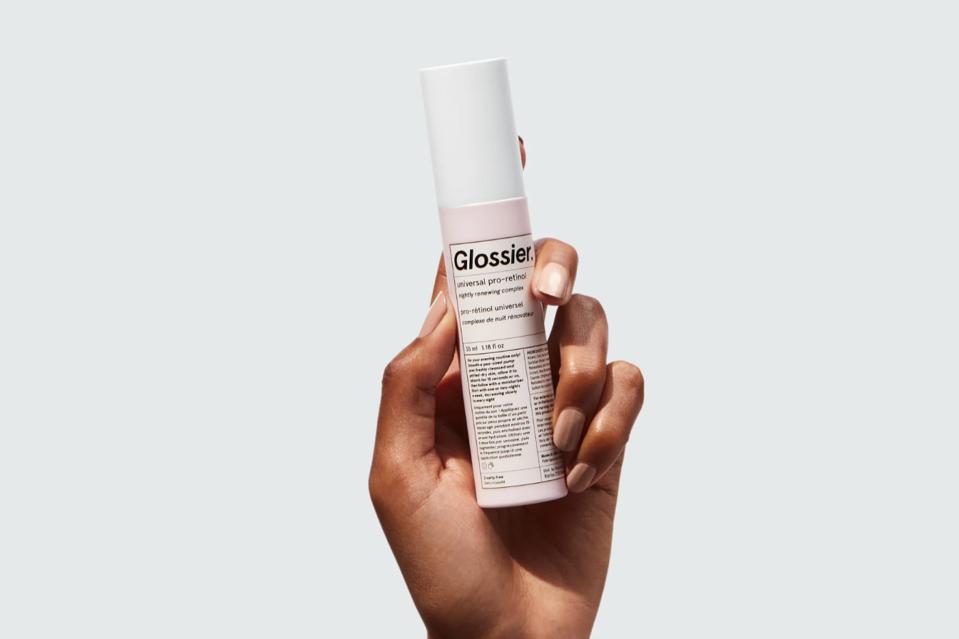Want a skincare hero that can tackle fine lines, acne and dark spots? Well, there’s a retinol cream for that. Retinol products, whether in the form of face creams, serums or lotions, can minimize a multitude of skincare woes, but given their potency they also require some know-how before application. “Retinols work by reducing oil production and promoting cellular turnover,” says Dr. Lian Mack, medical director and owner of New York-based dermatology clinic GlamDerm. “In turn, this helps decrease whiteheads and blackheads and enhance skin radiance.”

To reap the benefits, though, it’s important to find a retinol formula that matches your skin type and concerns. If you have very dry skin, for example, you’ll want a cream that exfoliates but also hydrates at the same time. The eye area requires a gentle approach with a blend of ingredients that penetrate deeply without causing irritation. And while high-quality serums can be costly, there are plenty of affordable picks with stellar results and science behind them. Ahead, we’ve rounded up the best retinol creams to consider, as well as expert advice and tips from Dr. Mack on how to apply these skin-perfectors and work them into your routine for a clearer, firmer complexion.
- Best Retinol Cream Overall: Paula’s Choice Clinical 1% Retinol Treatment
- Best Retinol Cream For Acne: CeraVe Resurfacing Retinol Serum
- Best Retinol Night Cream: SkinCeuticals Retinol 1% Refining Night Cream
- Best Budget Retinol: RoC Retinol Correxion Deep Wrinkle Night Cream
- Best Retinol Cream For Beginners: Universal Pro-Retinol
- Best Retinol For Sensitive Skin: Drunk Elephant A-Passioni Retinol
- Best Retinol Cream For Eyes: La Roche-Posay Redermic R Eyes Retinol Eye Cream
- Best Retinol Alternative: Herbivore Bakuchiol Retinol Alternative Soothing Serum
- Best Retinol For Dry Skin: Olay Regenerist Retinol 24 Max Facial Moisturizer
Best Retinol Cream Overall
A Time Release Formula With A Lightweight Feel
Best Retinol Cream For Acne
A Re-Texturizing Serum That Fades Dark Marks
Best Retinol Night Cream
A Wrinkle-Minimizing Night Cream With Soothing Ingredients
Best Budget Retinol
A Drugstore Skincare Hero That Helps With Fine Lines
Best Retinol For Beginners
A Gentle Retinol-Derivative For All Skin Types
Best Retinol For Sensitive Skin
A Vegan-Friendly Pick With Nourishing Oils
Best Retinol Cream For Eyes
A Caffeinated Formula That Helps Revitalize The Under-Eye Area
Best Retinol Alternative
A Plant-Based Serum That Targets Signs Of Aging
Best Retinol For Dry Skin
A Moisturizer With Anti-Aging Benefits
Everything You Need To Know About Retinol
What Is Retinol?
So what is retinol exactly, and how does it differ from retinoids? “Retinol and retinoids are both vitamin A derivatives,” says Dr. Mack. At the far end of the severity (and efficacy) spectrum is an oral application of retinoid. You probably know that prescription-strength retinoid, used to treat severe acne, goes by the name Accutane. Slightly less hardcore (and gentler on the skin) is a prescription-strength retinoid like tretinoin, often under the brand name Retin-A.
Less intense (and suitable for most skin types and retinol beginners) are OTC retinol creams and serums. Most of the products on this list fall into that category, and are a good starting point for most people. But for the super sensitive or dry skin types, there are retinoid esters—look for retinyl palmitate, retinyl acetate and retinyl linoleate on the ingredient list—which are the weakest member of the family.
And for those who are pregnant, breastfeeding or prefer to stay away from additional vitamin A, try bakuchiol, a plant derivative that’s considerably gentler on the skin. “Bakuchiol behaves similarly to retinoids by promoting cellular turnover, which ultimately increases the production of Type I collagen, softening the appearance of fine lines and wrinkles,” says Dr. Mack.
Who Can Use Retinol?
Retinol is generally considered to be safe for everyone (except those who are pregnant or breastfeeding), but those with darker skin tones do need to be extra considerate about use. “If a darker-skinned patient is irritated by the product, they are more likely to develop hyperpigmentation when compared to their fairer skinned counterparts,” says Dr. Mack. While everyone should acclimate their skin to retinol slowly (Dr. Mack suggests beginning with just a pea-size amount twice a week and slowly increasing dosage after three weeks), those with darker skin should be particularly careful in the ramp-up period.
How To Best Apply Retinol
Regardless of your skin tone, only use retinol at night. And always, always follow with diligent application of sunscreen during the day, as your skin will become more photosensitive. If not, you might just be accelerating the exact damage you’re trying to repair, like fine lines and uneven skin. Always apply to dry skin and follow with a moisturizer. When you’re just starting out, you might want to consider cutting or buffering your retinol serum or cream for a few weeks with a nourishing moisturizer free of actives (this CeraVe one will do the trick) until your skin acclimates.
Frequently Asked Questions About Retinol
When Should You Apply Retinol?
The use of retinol will make your skin more photosensitive. It’s best to apply it at night and follow with regular sunscreen application during the day to keep your skin protected as it’s being treated.
Is It Important To Wear Sunscreen When Using Retinol?
Retinol makes the skin more sensitive to UV exposure and more prone to sun damage, hyperpigmentation, dryness and irritation. Using a broad spectrum sunscreen with SPF 30 or greater can help keep your skin protected.
Should You Apply Retinol Before Or After Moisturizer?
What order you apply it in will depend on its consistency. Always start with clean skin and add on skincare from lightest to heaviest. Retinol serums tend to have a lightweight feel, so they should be applied before your moisturizer, while retinol creams can be applied after your serum or also on bare, dry skin.
How Often Should You Apply Retinol?
To see how well your skin reacts, start slow—applying one to two times per week—and with a gentle concentration (no more than 0.5%). Using retinol with a higher concentration for the first time and frequently could cause the skin to become irritated. If your skin hasn’t freaked out (peeled, reddened, bumped or changed colors), you can slowly bump up the usage and then eventually concentration as needed. If you aren’t seeing results with OTC options, consult with your physician about prescription strength options.
At What Age Should You Start Incorporating Retinol Into Your Skincare Routine?
You don’t have to wait for fine lines and wrinkles to set in before you start using retinol. You can start using retinol in your twenties as a preventive measure to keep signs of aging at bay. That’s when the body begins to produce less elastin and collagen—proteins that keep the skin supple and firm. What’s more, retinol can help minimize the appearance of acne-scarring and blemishes that may incur at any age.
















